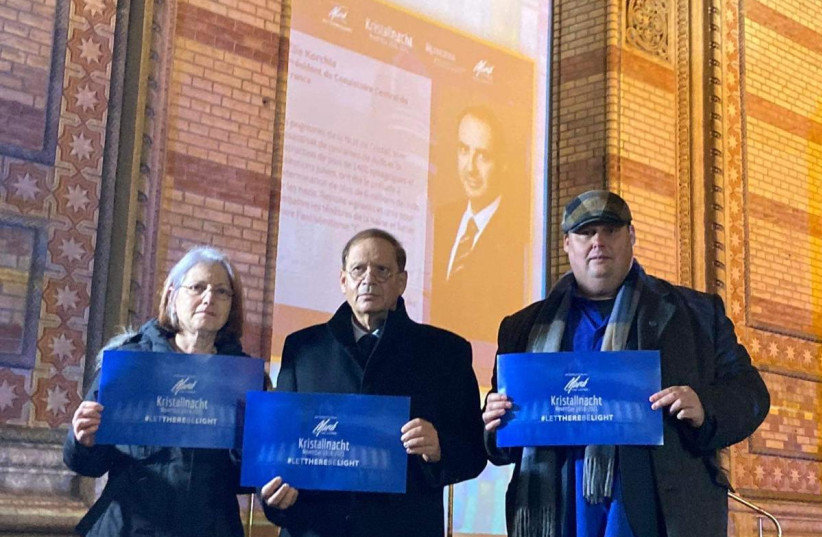Because of the Ukraine-Russia war, this year's March of the Living will take place with reduced capacity, its organizers announced on Wednesday in the UK House of Lords. With only eight Holocaust survivors scheduled to participate this year, it will likely be the last march to include survivors.
The International March of the Living formally announced it will resume its annual procession in person following a two-year hiatus due to COVID-19. It is set to take place in Poland on April 28, the same day as Israel's national Holocaust Remembrance Day, Yom HaShoah.
The survivors will be joined by dignitaries, community leaders and representatives of the third generation, the grandchildren of survivors, who will be taking up the torch of remembrance.
It is now incumbent for the young generations to commit to remembering the past as a teaching tool for the future.
The theme of the march will focus on the importance of passing the torch of responsibility onward, of both Holocaust remembrance and education, to the next generation, the grandchildren of those who endured the dark days of Nazi oppression and the systematic annihilation of more than six million Jewish victims.

More than 2,000 participants, both Jewish and non-Jewish, are expected to march. With most coming from Europe and some from Israel, including a global leadership delegation from KKL (Keren Kayemet L'Yisrael); a delegation from the Jewish Agency for Israel; Eitan Nieshlos, the founder of the Neishlos Foundation and representative of the third generation of Holocaust survivors; Jerusalem Mayor Moshe Lion, who will lead the city's delegation and a senior delegation from Israel Aerospace Industries (IAI), among others.
"In the last few years, the International March of the Living and the world as a whole have lost many Holocaust survivors," said President Phyllis Greenberg Heideman and Chairman Dr. Shmuel Rosenman. "This is almost the last opportunity to march alongside Holocaust survivors. It is our responsibility to carry the torch of their memory even in the face of the tragic ongoing war in Ukraine."
One of the survivors who will participate in the march this year is Eve Kugler, who was born in Halle, Germany, and as a child saw the rise of the Nazis to power. Eve survived the war, but many of her family members were murdered in the Holocaust. She now lives in the United Kingdom and has participated in the March of the Living for the last 10 years.
"We survivors are becoming an increasingly rare breed. And this should worry you more than it worries me. It should worry you because hatred of Jewish people and Holocaust denial are still prevalent. If this is how the memory of the Holocaust is treated - or dare I say abused - when those who suffered it are still here to tell our story… then how much worse will it be when the survivors are no more than a distant memory?" she said.
Eitan Neishlos, the grandson of Holocaust survivor Tamar Zisserman, who survived the death pits of Latvia thanks to a Christian family that was subsequently recognized as Righteous Among the Nations, joins the March of the Living to lead a journey of remembrance and responsibility among members of the third generation.
"Out of great respect to those who perished and tremendous esteem for the survivors, today the responsibility is passed to members of the third generation. From now on, we will preserve their memory and demand of ourselves that 'Never Means Never,'" he said. "This duty is not a burden, it is a privilege," he stressed.
The march will conclude with the traditional ceremony at the remains of the Auschwitz-Birkenau crematorium, attended by former Israeli Chief Rabbi Yisrael Meir Lau, IDF Cantor Shai Abramson, Holocaust survivors and Israeli singer Harel Skaat. Torches of remembrance will be lit in memory of the six million Jewish women, children and men who perished.
